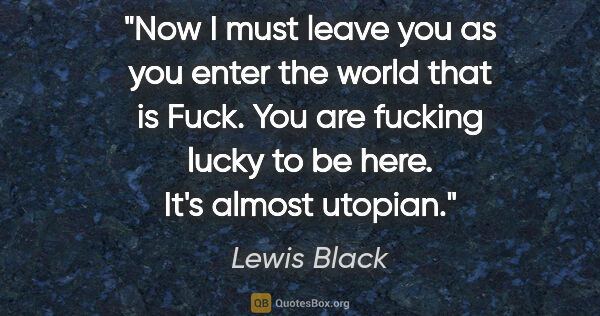Almost Quotes (page 64)
I don't mind admitting that I, too, have watched Hilton undergoing the sexual act. I phrase it as crudely as that because it was one of the least erotic such sequences I have ever seen. She seemed to know what was expected of her and to manifest some hard-won expertise, but I could almost have believed that she was drugged. At no point did her facial expression match even the simulacrum of lovemaking.
Christopher Hitchens
It seemed as though he gave way all at once; he was so languid that he could not control his thoughts; they would wander to her; they would bring back the scene,- not of his repulse and rejection the day before but the looks, the actions of the day before that. He went along the crowded streets mechanically, winding in and out among the people, but never seeing them, -almost sick with longing for that one half-hour-that one brief space of time when she clung to him, and her heart beat against...
Elizabeth Gaskell
If, however, you take a moment to observe how you actually feel immediately after you criticise someone, you'll notice that you will feel a little deflated and ashamed, almost like you're the one who has been attacked. The reason this is true is that when we criticise, it's a statement to the world and to ourselves, "I have a need to be critical." This isn't something we are usually proud to admit.
Richard Carlson
Oh incomprehensible pederasts, I shall not heap insults upon your great degradation; I shall not be the one to pour scorn on your infundibuliform anus. It is enough that the shameful and almost incurable maladies which besiege you should bring with them their unfailing punishments.
Comte de Lautreamont
You stream almost too violently, fountain of delight! And often you empty the cup again, by wanting to fill it!***And if a friend does you wrong, then say: "I forgive you what you have done to me; that you have done it to yourself, however-how could I forgive that!"***Sex: for free hearts, innocent and free, the garden happiness of the earth, an overflowing of thanks to the present from all the future.***
Friedrich Nietzsche
Like many fly fishermen in western Montana where the summer days are almost Arctic in length, I often do not start fishing until the cool of the evening. Then in the Arctic half-light of the canyon, all existence fades to a being with my soul and memories and the sounds of the Big Blackfoot River and a four-count rhythm and the hope that a fish will rise. Eventually, all things merge into one, and a river runs through it. The river was cut by the world's great flood and runs over rocks from...
Norman Maclean
Here, in their midst, George feels a sort of vertigo. Oh God, what will become of them all? What chance have they? Ought I to yell out to them, right now, here, that it’s hopeless? But George knows he can’t do that. Because, absurdly, inadequately, in spite of himself, almost, he is a representative of the hope. And the hope is not false. No. It’s just that George is like a man trying to sell a real diamond for a nickel, on the street. The diamond is protected from all but the tiniest few,...
Christopher Isherwood
For as long as I could remember, I'd been making vague and confident assurances that any day I would finish the thing [my book]. If and when I ever did, they would probably feel an almost physical sense of relief. I was like a massively incompetent handyman who'd been up on their roof now for years, trying to take down a gnarled old lightning-struck tree trunk that had fallen against the house, haunting every gathering, all discussions of family business, any attempt they made to sit down...
Michael Chabon

Human beings, who are almost unique in having the ability to learn from the experience of others, are also remarkable for their apparent disinclination to do so. You must not lose faith in humanity. Humanity is an ocean if a few drops of the ocean are dirty, the ocean does not become dirty.
Mahatma Gandhi
The train passed through a series of tunnels. Because the overhead light fixtures had no bulbs in them, some people lit candles inside the tunnels, which dramatically illuminated their black, liquid eyes. There was a solemn, almost devotional cynicism to these eyes, reflecting, as though by a genetic process, all of the horrors witnessed by generation upon generation of forebears.
Robert D. Kaplan
